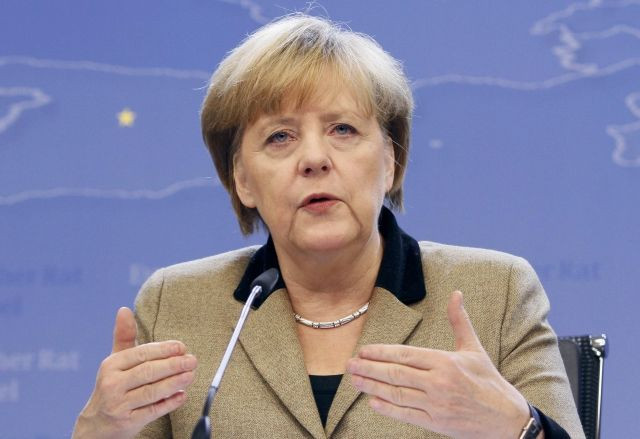Red Scare: Was Angela Merkel A Devoted Communist In Her Youth?

German Chancellor Angela Merkel, perhaps the most powerful woman on earth and the principal engineer behind Europe’s campaign to resolve its debt crisis, has shrugged off a new book that claims she was a very active member of the Communist Party during her youth in (then) East Germany.
The book, by German journalists Ralf Georg Reuth and Guenter Lachmann, entitled "The First Life of Angela M.," indicates that Merkel designed and led a Marxist-Leninist education program in a unit of the communist state's youth wing – a role that goes significantly beyond the “cultural duties” for the Free German Youth, a communist group that all young East Germans were required to join, that she had previously referred to.
The book alleges she was responsible for "Agitation and Propaganda (agitprop)” -- meaning, she spread communist ideology.
Merkel, who will seek a third term as Germany’s leader in elections slated for this September, said she has nothing to hide about her past.
"I can only fall back on my memories,” she told reporters on Sunday at a film screening in Berlin.
“You just have to accept this ... if something else turns up, then I can live with it. What is important to me is that I never kept anything secret. It is always the case that when something emerges, which of course from the perspective of the former West Germany looks very different, then people say 'she hasn't told us this yet' and 'she hasn't told us that yet'."
She added: "I don't know --S maybe there are other things I didn't talk about because no one ever asked me."
The Local, an English language paper, reported that at the Sunday event, Merkel, now the head of the conservative Christian Democrat party, also served in East Germany’s Free German Trade Union Federation (FDGB) and the Society for German-Soviet Friendship, a propaganda vehicle designed to encourage closer ties between East Germany and the Soviet Union.
Merkel was born in Hamburg in 1954, but moved to East Germany with her family soon thereafter.
In 1989, when the Berlin Wall fell, she was working as a researcher at the Academy of Sciences in East Berlin.
© Copyright IBTimes 2024. All rights reserved.





















